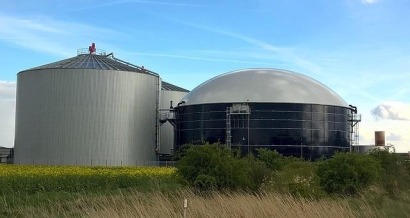
“Outside of the transportation sector in California, no accepted standard exists to measure the total carbon impact of biogas projects,” said Patrick Serfass, executive director of the ABC.
“Methane and carbon dioxide are already being emitted from the organic waste our society produces. Biogas systems reduce emissions, but their carbon intensity often ranges from a 50 - 700% reduction in carbon emissions compared to fossil fuels. That’s huge. To help meet climate goals, guide policy, and make better decisions on how to use our resources, better math is needed. That’s why we’ve hired EcoEngineers to lead this project for us.”
Using existing frameworks, such as the California Low Carbon Fuel Standard (LCFS) pathway for RNG and the Greenhouse Gas (GHG) Protocol, this new methodology will develop a strong science-based carbon accounting framework that can be used to more accurately measure the carbon intensity of biogas projects, looking at the whole lifecycle from feedstock to end use of all project products.
As part of the methodology development process, Eco will seek wide input into key assumptions related to LCA boundaries, baselines, and emissions factors.
“The demand for proper accounting in carbon reduction and removals has never been stronger,” said Shashi Menon, CEO, EcoEngineers. “Corporate business entities across the spectrum are looking for ways to incorporate transparent, verified disclosures of carbon reduction and removal into product strategies, supply chains and operations across their whole value chain. The American Biogas Council is helping the US industry, governments, and corporate America prepare for this and provide a clear environmental label for biogas products.”
A lifecycle methodology will create a more rigorous standard and crediting mechanism for all kinds of carbon markets. It allows communication between biogas projects developers and buyers of biogas, RNG, digestate and electricity. More specifically, it will allow disclosures of carbon intensity scores to biogas buyers. A universal carbon accounting methodology for all biogas project types will prevent two customers, who purchase gas from the same project, from reporting it differently.
“And beyond biogas, this new methodology will act as a framework for developing similar methodologies in other industries,” added Menon. “It could be game-changing.”

